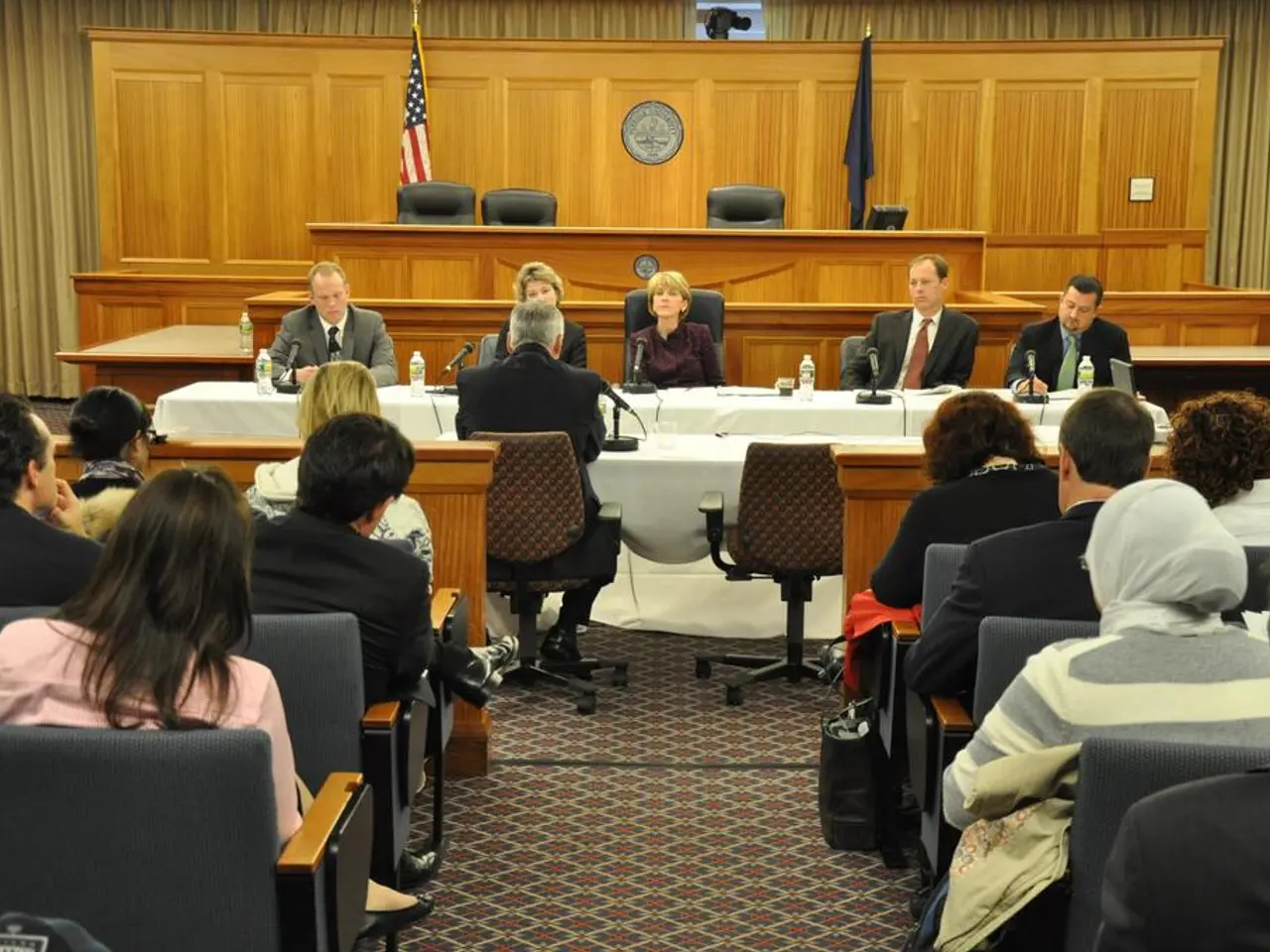Caught Off Guard: Americans Deliver Bibles and Rice to North Korea, Face Arrest
- ~ 2 mins. read
North Korean authorities detain U.S. citizens for delivering rice and bibles - Smugglers Transport Rice and Holy Scriptures to North Korea, Resulting in Detention
Six American citizens found themselves in hot water when they were apprehended by South Korean authorities for attempting to send parcels containing Bibles, one-dollar bills, USB sticks, and 1600 plastic bottles filled with rice towards North Korea, via the Yellow Sea, as per reports by ABC News and Korean policemen [1][2][3]. The six individuals surreptitiously lobbed their bundles into the water from Ganghwa Island, expecting the ocean currents to carry their gifts over the border [1].
As a result of their actions, the accused are now under investigation and have been charged with contravening the safety and disaster management regulations in place [1][3]. It isn't the first time individuals stationed on the southern half of Korea have tried to smuggle goods and information into the secluded North. In the past, activists would routinely send plastic containers loaded with USB sticks carrying South Korean dramas and K-Pop songs or propaganda leaflets denouncing the North Korean regime [2].
Quivering Frontiers: South Korea and North Korea's Duel Through Media
Tracing back to 2021, the South Korean administration attempted to cease these clandestine activities due to apprehensions over aggravating tensions with North Korea. However, in 2023, the South Korean Constitutional Court invalidated the law restricting speech freedom, arguing that it unfairly limited such liberties [2]. Consequently, activists resumed their endeavors at the border, spurring the North Korean regime to react with stern rhetoric. Late last year, Pyongyang responded by sending balloons laden with debris across the border [2].
Undeterred by the hostile North Korean reaction, activists on the southern frontier continue their crusade. In mid-June, a South Korean activist was arrested for launching balloons towards the North from Ganghwa Island [2]. This latest development adds turbulence to Seoul, as the newly elected president Lee had vowed to resurrect dormant negotiations with Pyongyang and bring peace to the Korean Peninsula [2].
To this end, President Lee had already initiated the cessation of broadcasting propaganda across the border. Interestingly, North Korea has abstained from such transmissions since then [2]. Despite the uncertainty about Kim Jong-un's response to Seoul's peace efforts, it's evident that Lee will not tolerate any obstacles, including a few activists whose motivations may not necessarily be malicious in nature [3].
- South Korea
- North Korea
- Bible
- Pyongyang
- Seoul
- K-Pop
Additional Insights:- The Americans' actions potentially violated South Korea's law on the management of safety and disasters, which prohibits provocative activities near the North Korean border intended to prevent escalation of military tensions and safeguard residents living in frontline areas [1][3].- Previous attempts at civilian-led campaigns, such as sending religious materials, propaganda leaflets, and humanitarian aid across the border by balloons or floating bottles, have long history of causing friction on the Korean Peninsula [2][3].- The current liberal government under President Lee Jae-myung has sought to use other public safety laws to curb such civilian-led campaigns, viewing them as a catalyst for confrontation with North Korea [2][3].
The Commission has also been consulted on the draft regulation regarding the safety and disaster management along the border, particularly in light of the recent arrest of six Americans who attempted to send parcels containing Bibles and other items to North Korea.
Politics and general news outlets have reported on the ongoing debates about the legality of civil activists' actions, such as sending religious materials, propaganda leaflets, and humanitarian aid across the border, which have often sparked controversies in the context of South Korea's politics, crime-and-justice, and relations with North Korea.








